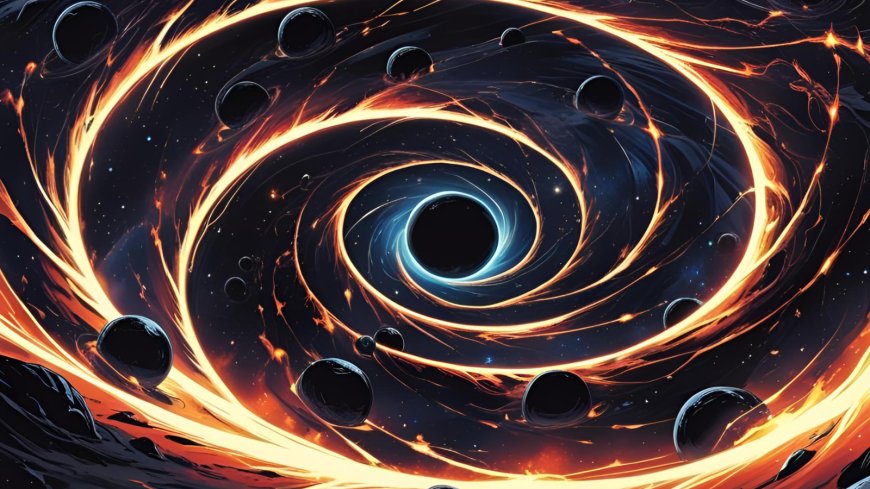JWST Discovers Massive Black Hole in Young Galaxy
Astronomers using the James Webb Space Telescope (JWST) have found a supermassive black hole in a primitive galaxy just 700 million years after the Big Bang. This discovery sheds light on how these cosmic giants evolved without the need for traditional star formation processes. The host galaxy of the black hole, A2744-QSO1, is chemically unevolved, indicating minimal star activity. This finding challenges existing theories on black hole formation in the early universe.

Using the James Webb Space Telescope (JWST), astronomers observed a supermassive black hole in a young galaxy just 700 million years after the Big Bang. The findings suggest that these black holes may have grown from primordial black holes created shortly after the Big Bang. This theory challenges the idea that supermassive black holes formed from the deaths of massive stars and subsequent mergers.
The observed black hole, A2744-QSO1 (QSO1), is around 10 million times the mass of the sun, comprising 10% of its host galaxy's total mass. This host galaxy, existing 13 billion years ago, is not only small but also low in metal content, indicating minimal star activity and metal production.
Research suggests that QSO1's formation did not involve the merger of smaller black holes from stellar deaths, as the lack of metals implies limited stellar activity at that time. This challenges the traditional view of how supermassive black holes grew rapidly in the early universe.
Various theories, including the 'Direct Collapse Black Hole' scenario and the possibility of 'reckless' early black holes exceeding growth limits, attempt to explain the rapid growth of supermassive black holes. The concept of primordial black holes, formed shortly after the Big Bang, is gaining traction as a potential explanation for the observed phenomena.
Recent research also supports the idea that supermassive black holes could have evolved from black holes created in the early universe. Observations of QSO1 with JWST provide valuable insights into the growth mechanisms of supermassive black holes and the role of primordial black holes in the universe's early stages.
According to the source: Space.
What's Your Reaction?
 Like
0
Like
0
 Dislike
0
Dislike
0
 Love
0
Love
0
 Funny
0
Funny
0
 Angry
0
Angry
0
 Sad
0
Sad
0
 Wow
0
Wow
0















































































































































































